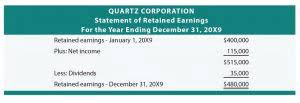
FOB freight collect and allowed specifies that the buyer must pay the freight transportation costs but the buyer deducts this cost from the seller’s invoice. The seller is responsible for the goods because the seller still owns the goods during transit. Conversely, with FOB destination, the title of ownership transfers to the buyer once the goods reach the buyer’s loading dock, post office box, or office building. This means the seller retains ownership and responsibility for the goods during the shipping process until they’re delivered to the buyer’s specified location. The choice between FOB Origin and FOB destination depends on the specific needs of both parties. Since Dara Inc. has experience managing international shipping or wants to save on transport costs, FOB Origin, they decided to go forward this way.

Cost, Insurance, and Freight (CIF) vs. Free on Board (FOB): An Overview
The buyer should record an increase in its inventory at the same point (since the buyer is undertaking the risks and rewards of ownership, which occurs at the point of departure from the supplier’s shipping dock). Also, under these terms, the buyer is responsible for the cost of shipping the product to its facility. In FOB shipping point agreements, the seller pays all transportation costs and fees to get the goods to the port of origin. Once the goods are at the point of origin and on the transportation vessel, the buyer is financially responsible for costs to transport the goods, such as customs, taxes, and fees.
FOB Shipping Point vs. FOB Destination: An Overview
Since the ownership of the goods doesn’t transfer to the buyer until the goods arrive at the delivery point, the risk of loss during transit is on the seller. As far as FOB accounting for small businesses, the designation matters because it determines when a sale is recorded, and it also dictates shipping terms. So, with an FOB shipping point agreement for $50,000 worth of goods, the seller would put $50,000 fob shipping point in their accounts receivable when the goods were shipped and deduct $50,000 from their inventory. As the goods shipped from the seller, the buyer would have to add $50,000 to their inventory and $50,000 to their accounts payable. So, the inventory would be an asset in their books even though the goods hadn’t arrived yet. As the shipping costs have already been paid, the amount is owed to the seller.

Free on Board (FOB) Shipping Points: All You Need To Know
However, companies that ship goods in the United States must also follow the Uniform Commercial Code (UCC). Because there is more than one set of rules, the parties in a contract must specify which governing laws they use for a shipment. The buyer records the purchase, accounts payable, and the increase in inventory on January 2 when the buyer becomes the owner of the goods. From that point, the buyer is responsible for making further transport arrangements. Beyond those costs, FOB terms also affect how and when a business will account for goods in its inventory. Hopefully, the buyer in this example took out cargo insurance and can file a claim.
- The articles and research support materials available on this site are educational and are not intended to be investment or tax advice.
- FOB transfers liability from seller to buyer when the shipment reaches the port of origin, not the destination.
- It means that a seller pays for all shipping costs and that a transaction is not complete until the goods reach the buyer’s destination undamaged.
- EXW stands for Ex Works, an Incoterm whereby the buyer of a shipped product pays for the goods when they are delivered to a specified location.
- Only when the purchase arrives in perfect condition does the buyer accept it and consider the sale officially complete.
- They also outline the responsibilities of buyers to sellers, as well as sellers to buyers.
- For this reason, some buyers prefer handling this to keep costs down or ensure the goods arrive more quickly or safely.
- The selection of an appropriate Incoterm, including FOB, depends on the specifics of the trade deal.
- The seller assumes the risk of loss of or damage to goods during transportation because the seller owns the goods during transit.
- If the Freight On Board is indicated as “FOB delivered,” the seller or shipper will be wholly responsible for all the costs involved in transporting the consignment.
Indicating “FOB port” means that the seller pays for transportation of the goods to the port of shipment, plus loading costs. The buyer pays the cost of marine freight transport, insurance, unloading, and transportation from the arrival port to the final destination. The passing of risks occurs when the goods are loaded on board at the port of shipment. Responsibility for the goods is with the seller until the goods are loaded on board the ship. FOB freight prepaid and allowed specifies that the seller is obligated to pay the freight transportation charges and they own the goods while they’re in transit. FOB is a widely used shipping term that applies to both domestic and international transactions.

As with all Incoterms, FOB does not define the point at which ownership of the goods is transferred. FOB shipping point transfers the title of the shipment when the goods are placed at the shipping point. As soon as the seller brings the goods to the point of shipment, the legal title of those goods passes to the buyer and the seller is no longer responsible for the goods during delivery. If the carrier damages the package, the buyer can’t come after the seller because the title has already transferred. The seller’s only responsibility is to bring the package to the loading dock or delivery truck.

What is FOB Shipping Point?

Each company shipping internationally has different needs, so each might have reasons for preferring one or another of the other 10 agreement types. These shipping firms generally have the contacts and know-how to speed shipments along and get better prices. There are certain situations when CIF is the better option to use when shipping and receiving goods. It’s a good idea to use a CIF contract when buyers deal with international suppliers, especially when sellers have easy and direct access to shipping vessels. CIF agreements cut down the need for buyers to take care of logistics in areas where they may not have experience, so all they need to do is simply take possession of the shipment once it arrives. Keep in mind, though, that CIF agreements are normally much more expensive than others.
